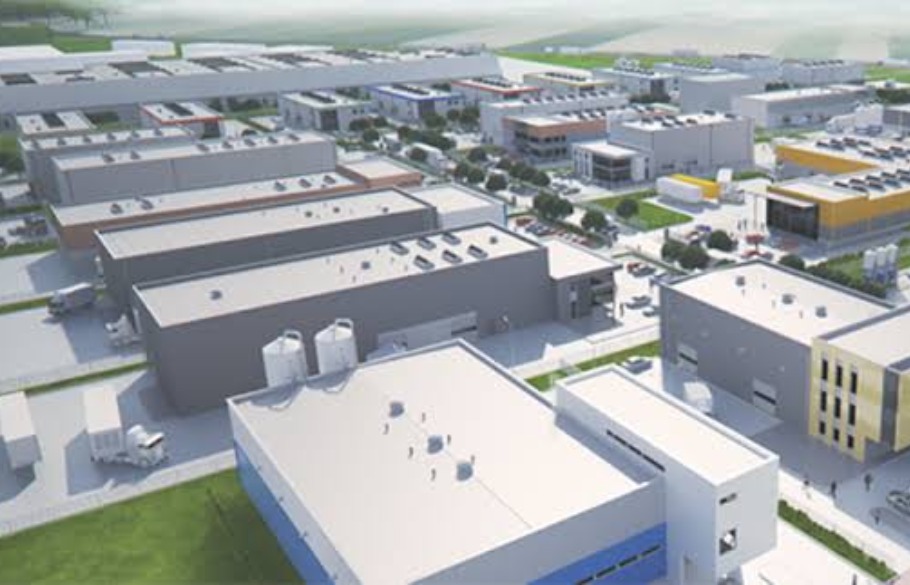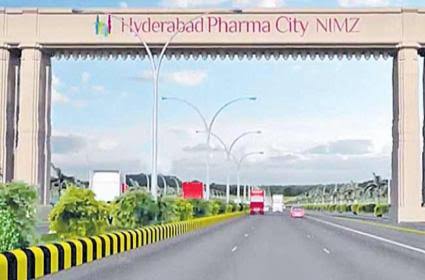
India’s largest pharmaceutical hub raises pollution fears
Billed as India’s largest pharmaceutical hub, the Pharma City project, coming up on the outskirts of Hyderabad, has raised the hackles of environmentalists who warn that it could destroy the natural ecosystem, polluting air, water, and land.

Billed as India’s largest pharmaceutical hub, the Pharma City project, coming up on the outskirts of Hyderabad, has raised the hackles of environmentalists who warn that it could destroy the natural ecosystem, polluting air, water, and land.
The widespread skepticism surrounding the mega initiative, expected to attract ₹64,000 crore investments from domestic and international players, stems from the past experiences.
In the first wave of major industrialisation push in the late 1970s, several bulk drug companies had come up in the adjoining districts of Medak, Ranga Reddy, and Nalgonda, a majority of them flouting norms and playing havoc with the environment.
The Patancheru industrial estate in neighbouring Medak district had, in fact, earned the dubious distinction of being one of the most polluted townships in the country with pharma units failing to comply with the standards meant for effluent treatment.
Also read: ₹102L cr NIP: TRS seeks ‘democratic inclusion’ of states in mega projects
As a result, groundwater in the region remains highly polluted while the incidence of pollution-related diseases including asthma and bronchitis is high in nearby villages.
“Given this experience, we are extremely worried about the public health hazards that the proposed Pharma City will cause. There is bound to be further deterioration of the environment,” noted environmentalist activist Prof Purushotham Reddy told The Federal.
Ambitious project
The Telangana government has identified over 19,000 acres on Hyderabad-Warangal highway for the project to host pharma firms, device makers, research and development centres, and a pharma university, making it a one-stop cluster for pharma and healthcare companies and service providers.
The focus of the pharma cluster is to bring down the cost of manufacturing and make companies globally competitive.
“After the complete implementation of the project, it is expected to generate investments of about ₹64,000 crore and provide direct and indirect employment to about 5.60 lakh people,” said Telangana’s Industries Minister KT Rama Rao.
Last month, the Centre had granted National Investment Manufacturing Zone (NIMZ) status to the project for which the Telangana government has already acquired 8,500 acres and the remaining land would be acquired soon. The final approval was given based on the techno-economic feasibility study and development plan submitted by the state government.

The work on the first phase of the project would commence soon with over 150 companies setting up their units, the Vice Chairman and Managing Director of Telangana State Industrial and Infrastructure Corporation Limited E V Narasimha Reddy said.
Over 350 firms had approached the government seeking land in Pharma City. They include companies across the value chain of pharmaceuticals including Research and Development, Active Pharmaceutical Ingredients and biological manufacturing.
“Initially, the land will be allotted to 150 pharma units. We have also obtained all the required permissions including environment clearance from the Union Environment, Forest and Climate Change Ministry,” the Industries Secretary Jayesh Ranjan said.
The state government is seeking to develop Pharma City as an integrated facility by roping in large pharma companies, both domestic and global, to consolidate its position as a leading pharma producer in the country.
Also read: Innovation key to National Infrastructure Pipeline plan success
The creation of infrastructure and other facilities is expected to cost ₹16,395 crore. The state government has sought central assistance of ₹6,000 crore for creation of internal and external basic infrastructure and other technical work. The Centre had agreed to release ₹1,500 crore initially.
The Department of Industrial Promotion (DIP) had given in-principle approval to the project in January 2016, though it was conceived in 2015. Thereafter, the government submitted the techno-economic feasibility report and the detailed project report and the final approval came last month.
“This will be a first-of-its-kind project featuring state-of-the-art infrastructure, common facilities including Zero Liquid Discharge-based Common Effluent Treatment Plant, an integrated solid waste management facility, district heating and cooling systems, logistic parks, a Global Pharma University, regulatory facilitation cells, common drug development and testing laboratories, and start-up and SME hub,” Rama Rao said.
The government has already constituted a Special Purpose Vehicle—Hyderabad Pharma City Ltd—to implement the project.
Galore of concerns
The environmentalists pointed out that the ambitious project could drain natural resources, destroy the environment, and cause dangerous pollution to air, water, and land. It would likely also destroy the natural ecosystem.
“No pharma cluster has come up without harming the environment,” Prof. Purushotham Reddy.
Under the guise of a fast-track policy, these pharmaceutical companies were given permissions within weeks. “There is no plausible way that these companies are undergoing due diligence checks, these industries work as per demand,” he said.
Dr. Narasimha Reddy, president of Citizens Against Pollution, a city-based NGO, said that the project would wreak havoc on the environment.
“We would appreciate if the government backtracks from building a pharma city over a huge extent of land as it is not only dangerous to the environment but also not viable,” he said.
Flagging the opaqueness in the land acquisition process, the green activists point out that the people in Mucherla, Yacharam, and Saireddygudem villages were not given adequate time to submit their objections over land acquisition process.
“The entire process was hurried through and the farmers were paid very low price for their lands,” said K Saraswati, a local activist.
The activists said that the Environment Impact Assessment (EIA) report was misleading the public by claiming that each individual pharma unit will have to conduct EIA studies. “Once the NIMZ (National Investment and Manufacturing Zone) gets environmental clearance, no individual unit will be asked for clearances,” Prof Reddy pointed out.
Unfair practices
The track-record of the pharma industry in and around Hyderabad does not evoke any confidence among the locals who bear the brunt of pollution. In order to undercut the costs, local generic pharma companies often use cheap labour and routinely flout environmental norms.
The big pharma companies outsource the polluting processes to smaller companies, allowing them to steer clear of legal liability. In case of violations, instead of closing down units, bank guarantees of ₹25 lakhs are being sought by the Pollution Control Board from companies whose profits run into hundreds of crores. These guarantees are broken with impunity and money is encashed by the Board.
Disagreeing the government’s claim that pharma city units would adopt zero liquid discharge technologies, Prof Reddy countered, “If that is the case, why can’t these companies demonstrate their green technologies in the already polluted Bollaram, Jeedimetla and Patancheru industrial clusters in and around Hyderabad?”
Also read: Rebel turned ruler; KCR perfects unpredictability as political craft
Objections are also being raised over the amended conditions of environmental clearance by the Expert Appraisal Committee of Ministry of Environment and Forests in the case of the pharma city project. The Committee allowed the usage of coal for boilers in pharma companies.
The environmentalists demanded that the conditions should include the usage of Flue Gas Desulfurization in the boilers to limit pollution due to the burning of coal.
“If all pharmaceutical units burn coal, it would cause serious environmental problems,” warned Dr. K Babu Rao, a retired scientist from IICT (Indian Institute of Chemical Technology).n fears


